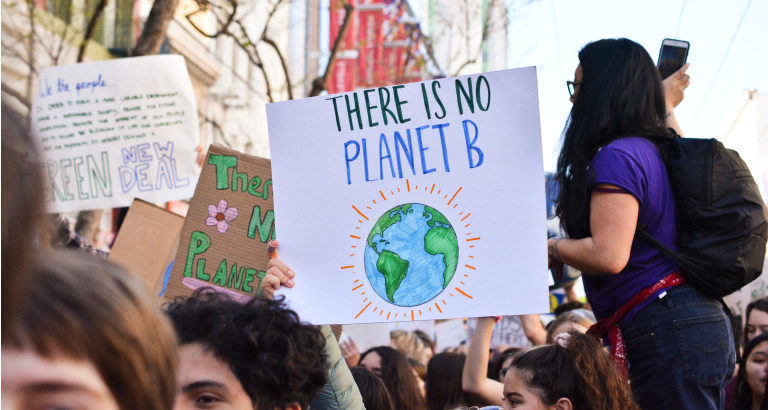What’s the deal with climate change and health? (part one)

Climate change and health are intricately connected yet not widely discussed, even though climate change can impact health through a number of different mechanisms. This two-part series will discuss how climate events such as wildfires, hurricanes, flooding, and heatwaves impact human health.
How heat influences climate change and health
Extreme weather events, including heatwaves, hurricanes, droughts, and climate change-induced wildfires, are all increasing in frequency and severity as climate change progresses.
Heatwaves contribute to hundreds of excess deaths every year, with negative health outcomes falling primarily on the elderly and low-income communities of color. Cities across the United States often open cooling centers to provide refuge from the heat for those who otherwise would not have access to air conditioning. Further assessment of current heat interventions would be beneficial to ensure they are targeting those who need them most. New research from the Boston University School of Public Health shows that extreme heat not only has a negative effect on older populations, but may actually affect younger adults more. Proving that more research and access to data is needed to truly understand the impacts of climate change on health.
How hurricanes impact climate change and health
Exposure to hurricanes has been associated with a higher risk for preterm birth, unintentional injury, elevated symptoms of anxiety, depression, and PTSD, and increases in respiratory illnesses. Damage to infrastructure caused by hurricanes can also be costly and impairs the functioning of health systems and the ability of emergency response teams to act. Read more about the impacts of Atlantic basin hurricanes here.
How drought affects climate change and health
Other locations such as the Western United States are experiencing droughts due to rising temperatures and changes in precipitation patterns. Drought leads to increased water scarcity and reduced drinking water quality. It can also limit crop yields, contributing to increased food insecurity.
Warmer, drier conditions also increase the risk of wildfires. During the summer of 2021 alone, we have seen unprecedented severity of wildfires across the United States. Fires impact health through the inhalation of smoke which can contain toxins such as lead and zinc, and cause respiratory conditions, cardiovascular disease, and cognitive impairment.
Population displacement and trauma from these extreme events can cause financial and social instability and contribute to substantial mental health burdens. The links between climate change and health are seemingly endless. Part two of this conversation will examine climate change and health impacts that are harder to see and how these changes to the climate affect health on a global scale.
Devin O’Donnell is an MPH candidate at the Boston University School of Public Health, focusing on community health and human rights. She is interested in the intersection of climate change and health, more specifically, how community mobilization and cohesion are necessary for mitigation and adaptation efforts. Devin is working with the BUSPH Program on Climate and Health and the American Red Cross in these realms. You can find Devin reliving her bakery days or exploring the nearby trails in her free time.
Quinn Adams is a Climate and Health MS student at the Boston University School of Public Health and is an incoming BUSPH Environmental Health PhD student. She is interested in understanding the influence of climate change and extreme weather events on human health outcomes, with a particular interest in the impact on emerging infectious diseases and disease transmission. Previously, she held positions working on environmental health issues at the National Caucus of Environmental Legislators (NCEL) and the Association of Public Health Laboratories (APHL) in Washington, DC.




